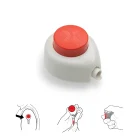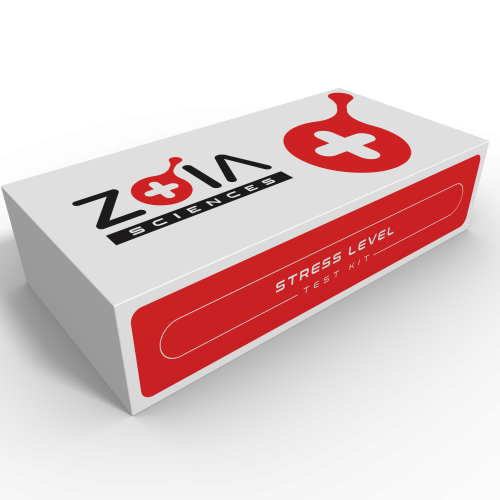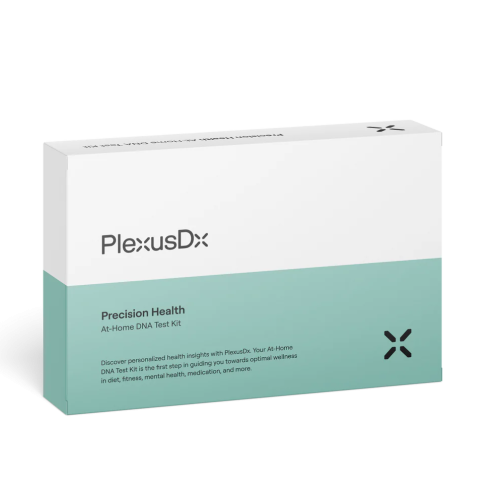Description
Discover New Comfort
Detect Underlying Conditions
hs-CRP, or High Sensitivity C-Reactive Protein, measures overall levels of inflammation in your body. Hs-CRP is one of the biomarker screens used to detect chronic inflammation, which can help identify those that are at high risk for stroke or heart disease.
Low hs-CRP – indicates you have low risk of heart disease.
High hs-CRP – indicates inflammation is present and you may have high risk of heart disease. Following up with a doctor is recommended.


Blood Draw Made Easy
Tasso+ Blood Collection Device
The Tasso+, self-collection device makes it quick and easy to independently draw a small blood sample at home, without the stress or circulation issues of a fingertip draw.
Both of our TruAge test kits require a blood sample to analyze various age-related biomarkers. Each kit comes with all materials needed to complete an at-home, blood sample collection. Several lancets (a small finger-pricking tool) are included in each TruAge kit. However, patients who are squeamish or uncomfortable with that extraction option can purchase a Tasso+ device, which attaches to the bicep-facing, upper section of the arm for minimal patient involvement in the blood collection process.
What This Test Measures
Inflammation Panel
Inflammation is your body’s natural response to an injury, but what if you’re experiencing inflammation without injury? Inflammation biomarkers detected in your blood can indicate serious underlying conditions that may be caused by active infection, risk of heart attack, auto-immune disorders and cancer.
hs-CRP, or High Sensitivity C-Reactive Protein, measures overall levels of inflammation in your body. Hs-CRP is one of the biomarker screens used to detect chronic inflammation, which can help identify those that are at high risk for stroke or heart disease.
Chronic inflammation has been linked to a deficiency in Vitamin D as scientists have identified a direct link between low levels of Vitamin D and high levels of inflammation. In several studies, Vitamin D has been shown to have a powerful anti-inflammatory effect, therefore, measuring Vitamin D levels provides an important biomarker to identify those at higher risk of chronic illnesses with an inflammatory component.
High Vitamin D Levels – While rare, high levels of Vitamin D are usually caused by large doses of Vitamin D supplements – not by diet or sun exposure. The buildup of Vitamin D in your blood can cause nausea, vomiting, weakness and frequent urination.
Low Vitamin D Levels – Deficiencies in Vitamin D can lead to low calcium absorption which causes weakened bones that become soft and brittle and prone to fractures as well as osteoporosis – a loss of total bone mass. Deficiency in Vitamin D can lead to joint pain and swelling and may contribute to the development of cancer, cardiovascular disease, type 2 diabetes, and autoimmune disorders.
Symptoms of Low Vitamin D:
- Fatigue
- Joint pain and swelling
- Muscle weakness, muscle aches or muscle cramps
- Mood changes like depression
Information
Our bodies are unique, and standard nutrition guidelines can’t cater to our genetic makeup. Personalized nutrition, powered by our Precision Nutrition Test (Nutrigenomics), is the future of health and wellness. We analyze up to 200 million genetic variants to provide a personalized report, helping you make sustainable changes for optimal fitness, health, and lifestyle. No more guesswork—just you, at your healthiest.
When to test
Recommended for individuals experiencing negative health symptoms caused by chronic stress or anxiety. Take control of your well-being and order your MLD Stress Level Test today.
What's measured
Measure Cortisol, the body’s ‘Stress Hormone.’ High cortisol levels can contribute to weight gain, weakened immune system, acne, thinning hair, fatigue, diabetes, and more.
NEW TO SELF-COLLECTED TESTING?
Learn How It Works
Take control of your health. Self-collected tests allow you to test in the comfort of your own home when it is convent for you.


















